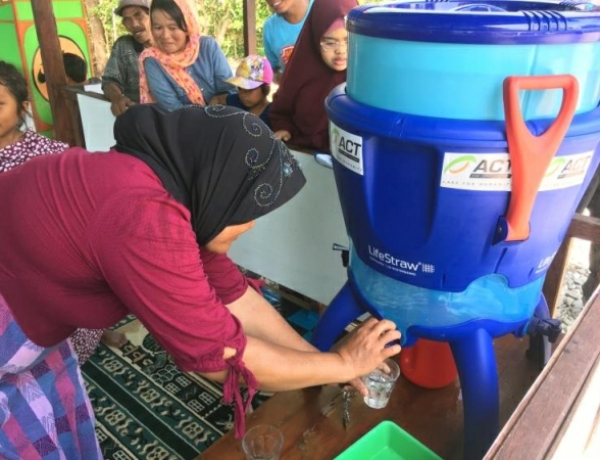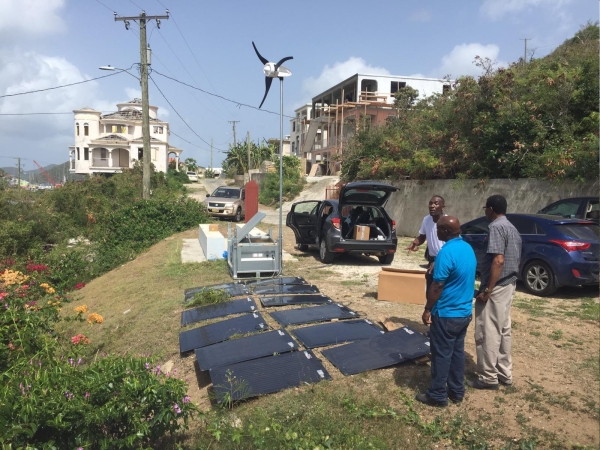
When the unfortunate event of a disaster occurs and the infrastructure of a community is devastated, Leading Edge Power is able to step in providing renewable power for the Incident Management Team (IMT) and later in the IDP or refugee camps. Leading Edge innovations also feature in Disaster Risk Reduction where tsunami warnings systems, seismic monitoring and early warning weather systems run on environmentally friendly power.
(Photo above, courtesy of Team Rubicon)
Leading Edge provides a sustainable solution, that can continue to be used as the disaster moves from one stage to the next. For example, a hybrid solar/wind system can power a water purification system during the early recovery phase and then be used later to provide power for educational training for long term refugees. The benefit is a high return on investment spread across many years.
Here's how we can help:
1. Prevention and Mitigation
In areas at high risk of tsunamis, earthquakes and severe tropical storms, self-contained, off-grid power systems such as the PowerBox can be pre-loaded into warehouses ready for shipping to the local area and then quickly commissioned to support the relief effort - see Section 3 below.
Off-grid power is also required for remote early warning systems such as those measuring seismic and meteorological activity. Even the community warning systems may need solar/wind to power the WIFI that will disseminate the warning across a small area.
2. Preparedness
By learning from past experiences, it is possible to provide people on the ground with the resources they need to reduce the impact of a disaster. Early warning systems reduce the element of surprise so people can board up buildings and move to safety.
3. Response
One of the first activities is the set up and running of the IMT with a command centre, reception and hospital. Here, off-grid power can provide lighting, WIFI and a radio relay hub to strengthen communications for the teams on the ground. It can power laptops and mobile phones when the grid is down.
A hybrid solar/wind off-grid system doesn’t require fuel to keep it running, an important consideration as it soon becomes a scarce resource in disaster zones.
4. Recovery
There are key functions in an IDP or POSCO camp that require power 24/7. These include: Water purification Refrigeration of vaccines to allow immunisation programmes to continue, Lighting in critical areas at night WIFI so displaced people can connect with family members over social media thereby reducing the impact on the recovery team.
All of this can be provided by sustainable, environmentally friendly power from solar and wind. Our solutions don't require specialist expertise to get them up and running, and don't require fuel or maintenance to keep it operating 24/7.
Contact us today to discuss your requirements and we will design a system to deliver what you need, where you need it.
Tell us about your project
Our Off-grid experts will come back with recommendations







